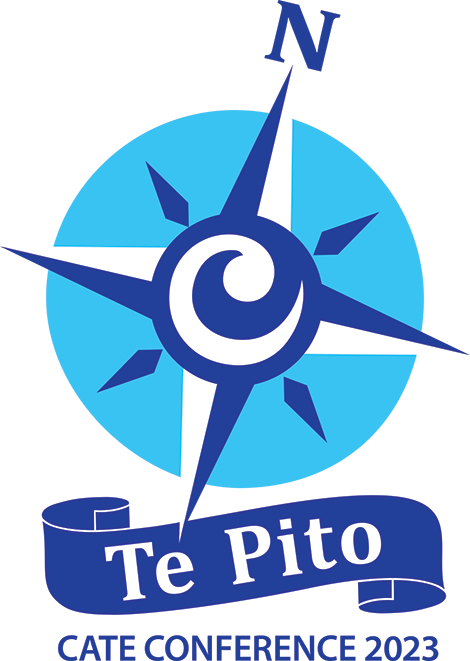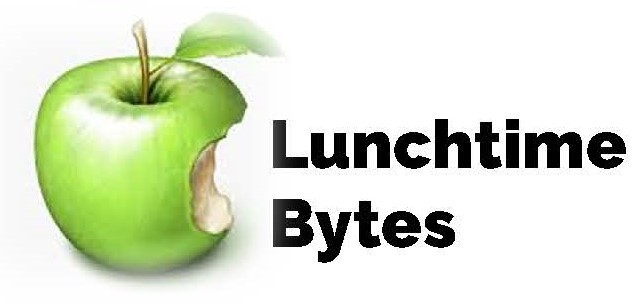 |
 |
Kia ora everyone, In this newsletter we are excited to talk more about Dr Candy Ho’s presentation at the conference and the workshop that will follow. She is so enthusiastic and is looking forward to meeting those that can make it to the conference. Remember registrations are capped this year so make sure you do not miss out! There are some other amazing webinar and symposium opportunities coming up, all the details and registrations are below. The draft programme and registration details for the Online Gateway Conference is below, there are a range of speakers organised including TEC, Worksafe, Workforce Development Councils as well as a number of experienced Gateway Co-ordinators that will share their practice with you. Thank you to Aquaculture NZ for a very informative session on Tuesday 15th August—recording for those that missed it is below. Please share with Science/Biology teachers and students who have a strong interest in these areas and love being either on or in the water. We are looking forward to hosting Dr Heather Carpenter in our next Lunchtime Byte session on the 1st September where she will talk about her Choice Match tool which was recently recognised by the OECD. Ngā mihi,  |
 |
We are looking forward to hosting Dr Candy Ho, chair of CERIC and the inaugural Assistant Professor, Integrative Career and Capstone Learning at the University of the Fraser Valley in Canada. In her keynote she will be talking about “Finding True North: Navigating the Past, Present, and Future of Career Development.” This keynote will take us on a journey by delving into the humble beginnings of our career development work, reflect on the present-day context, and envision a collective future that embraces career development as a public good. Here is the abstract— “We find inspiration in the original vision of our profession: make the most of human potential, help individuals generate self-awareness, and advocate toward social justice. To what extent do these elements surface in our work with students? What else are we noticing that’s shaping our work and profession? Together, we ponder how these core elements persist in our contemporary contexts, and the implications they have for our work as career development professionals. The pandemic's impact reshaped work-life dynamics, pushing us to rethink career journeys and societal contributions. To conclude, we consider future trends, identify collaborators and ‘sandboxes’, and anticipate opportunities and challenges. By reimagining our work to better assist our students, their whānau and community, we can effectively address why career development matters to pave the way for our collective future”. Her workshop following the keynote—“Maximising Career Intervention Through Career Influencers” This workshop introduces a systemic helping approach involving Career Influencers, a phenomenon I uncovered in my doctoral research. Numerous studies have found that people are likely to seek career help from those they trust within their personal network, such as family members, co-workers, and teachers. These Career Influencers often informally provide career advice, guidance, and counselling without career development background and training. Helping Career Influencers realise their pivotal role and impact in our clients’ lives could be the key to truly helping our students long-term while promoting the importance of lifelong, continual career development for everyone. I highlight the study’s findings and discuss their implications to practise in multiple career settings, and invite participants to consider how they can engage Career Influencers within their own organisation and practice.  |
 |
Aquaculture Webinar recording  |
 |
Lunchtime Bytes—Friday 1st September at 1.30pm Choices Match was chosen for inclusion in the OECD career readiness site as an example of an evidence-based tool, using theories of vocational personality, identity, self-assessment and interest. The aim is to offer the user easy frameworks to draw out key understandings about self and work interests; the tool uses the model of Self + Skills = Possibilities to do this. The user finds the relationships between personality theme, interest and vocational orientation (derived and adapted from Hollands Self-Directed Search), in a self-assessment process. The skills they would like to learn and the work environments they are attracted to are explored in the Skills Kete, and the roles they are interested in are found in attractive Job Cloud Cards. Dr. Heather Carpenter has worked across a range of education and social services settings developing resources, tools and curriculum for all ages. She has a particular interest in career decision-making for young people and providing a good start. Heather is the author of The Career Maze, and your 21st Century career.  |
 |
Gateway Online Conference Register your interest and you will be sent details to log into the conference closer to the time. There is also an opportunity to put your questions forward to give panellists an opportunity to ensure they have the answers. Here is a draft programme, please note some of these times may change. We are finalising speakers and times currently.  |
 |
Here is an amazing opportunity to join a webinar on the “Global perspectives and career development, impairing your inclusive practice through indigenous knowledge and worldwide views”. This is a free webinar series organised by Ceric alongside CDANZ that features New Zealand career development experts Dr Lynette and Peter Apulu. indigenous peoples represent about 5% of the world's population but make up 15% of the world's poor. indigenous people are more likely to face obstacles to workforce entry due to racism, unconscious bias and discrimination. This leaves well meaning career practitioners at a loss for how to best support their clients, and also provides an urgent challenge to the field of career development, governments and employers to create and sustain inclusive policies, strategies and practices that enable access to power and support decision making for indigenous people. Since the United Nations Declaration on Rights of Indigenous People (UNDRIP) was adopted in 2007 by the General Assembly of the United Nations, countries and industries have been grappling with how to implement this universal framework for the survival of dignity and well being of the indigenous people of the world. Career practitioners are a key component to the career journey and can contribute to bringing UNDRIP and other country's founding documents to life by undertaking to learn, unlearn and relearn what we know about indigenous peoples around the world. Furthermore, indigenous career practitioners must also feel able to claim and reclaim sovereignty of their knowledge and the impact of colonisation on their worldviews. This webinar will provide an opportunity to learn from inspiring indigenous career professionals from New Zealand and Canada, who will share the journey in the career development field and their perspectives on cultural approaches to indigenous career development. The conversation will help participants understand how indigenous peoples and indigenous career practitioners’ world views of work and holistic approaches to self development and self determination are key aspects of cultural knowledge that inform the workforce development today.
Tuesday September the 19th 2023 9am-10am. Webinar #2 Tuesday, September 26, 2023, 9am-10am Register here (All registrations will receive the recording of the session if you are unable to make it on the day).  |
 |
Good Youth Employment Symposium Lower Hutt Events Centre—30c Laings Road, Hutt Central, Lower Hutt Some of the challenges rangatahi have identified are:
Presenters, from every aspect of the youth employability ecosystem speak to these issues, keeping it real about the challenges, the wins, the heartaches and the learnings. You will hear from employers about what good youth employment looks like to them, what their challenges are, and how they have navigated around them. We also hear from Business Associations, and how they are now stepping forward to be part of the solution. We explore how we embed and normalise 'fluid intelligence', the capacity to think and act across boundaries. It is great to see the growing realisation that governments cannot address these issues alone, and in fact local solutions tend to have the greatest buy-in and impact. Click here for more information and to register Good Youth Employment Symposium—YEA  |
 |
Driving Change Roadshows This is a FREE event and they would love to talk with people working with young people in schools. Here are the dates they are coming to your region: 31/08/23 10:30am Hawke's Bay—Kainga Pasifika, Flaxmere 04/09/23 11:30am Invercargill–Community Trust South 06/04/23 10:00am Hamilton—Municipal Building 12/04/23 10:00am Whakatane—Eastbay REAP 14/09/23 10:00am South Auckland—Blue Light Youth Centre 19/09/23 03:00pm Wellington—Youth Inspire, Lower Hutt 22/09/23 01:00pm Auckland—Youthtown, Hillcrest 26/09/23 10:30am Greymouth—Salvation Army building 10/10/23 10:30am Kerikeri—TBC 16/10/23 10:30am Nelson—Richmond Library 24/10/23 10:30am Palmerston North—All Train 31/10/23 10:00am Christchurch—Salvation Army Corp RSVP: One week prior to hui for to sheree@drivingchange.nz  |
 |
Baskets of Knowledge Podcast These are hosted by Tane Whitehead and Prajesh Chhanabhai and are designed with young people in mind. Something to share on Facebook/Newsletters etc. Here is Episode 83 “The unexpected path to purpose with Kendall Flutey”.  |
 |
INAUGURAL RESEARCH TO EVALUATE SECONDARY SCHOOL TRANSITIONS Taking a broad and future-focused lens of the secondary-tertiary-employment interface, the evaluation will include: careers advice and guidance; how well educators and employers are enabled to support programmes; and pathways and transitions that create an effective ecosystem between the world of education and the world of work. This pivotal project reunites education experts Arthur Graves and Josh Williams, respectively the Ministry of Education's previous implementation and policy leads for the Youth Guarantee rollout of secondary tertiary initiatives between 2010 and 2014. Josh Williams, Head of Vocational Consulting, Skills Group suggested the transition could be made with policy settings that support and enable a more seamless ecosystem between education and employment. "The work on Youth Guarantee and Vocational Pathways over 10 years ago delivered some very impactful insights, so I'm looking forward to working with Arthur again on a deep dive into the school transitions space to see how things are playing out in the food and fibre area, and the wider lessons we can take from that as well," said Josh. "I am delighted Josh and I have the opportunity to team up again at the secondary-tertiary-employment interface. It is a privilege to have this opportunity to revisit a space that was such a career highlight. I look forward to seeing the progress to date and the potential for further enhancements to such an important part of the food and fibre talent pipeline," said Arthur. The evaluation phase will involve quantitative and qualitative analysis about the state of play, evidence of what is working well or could be improved, stakeholder perceptions, and learner outcomes from a decade of young people engaging in the range of secondary-tertiary-employment interface initiatives. Arthur and Josh welcome the opportunity to hear what the careers and transition advisors’ community is seeing and thinking as part of the evaluation exercise, and for their participation in the project. The project will take a comparable look across all learners and sectors. Food and Fibre CoVE expects the findings and insights will have wider application and relevance than just the food and fibre sector.  |